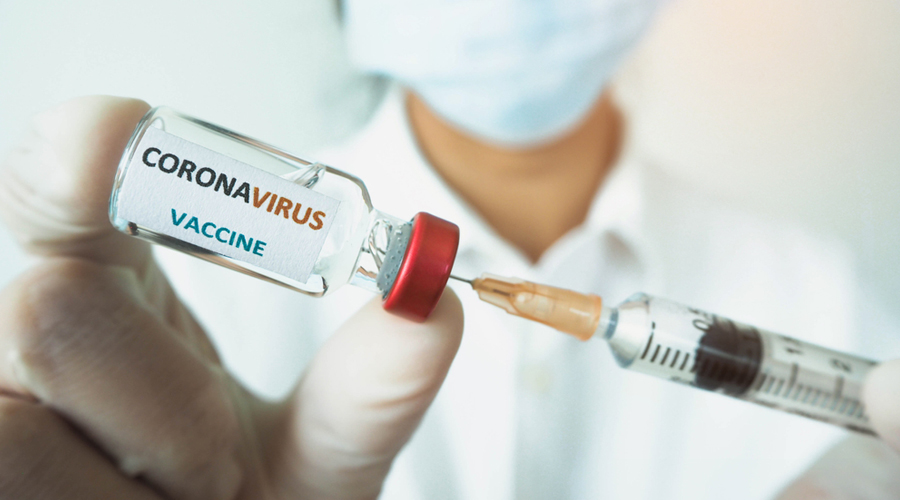
All you need to know about Covid-19 vaccination drive- people above 50 years and those below 50 with underlying chronic health disorders could begin next week
Healthcare workers, frontline workers, people above and below 50 with underlying chronic health disorders could seek immunisation next week

“Based on feedback from the dry run (last week), we’re fully prepared to introduce Covid-19 vaccines within 10 days of the emergency use authorisation (by drug regulators),” health secretary Rajesh Bhushan said.
The regulatory authority had approved the vaccine on January 3. The government hopes to immunise around 300 million people from these priority groups over the next seven months. The Telegraph asked health officials and experts guiding the vaccination strategy about the steps towards immunisation.
A national expert panel has identified four priority groups based on two risks — occupational risk to the Covid-19 infection and the risk of severe Covid-19 because of either age or underlying health disorders. The Centre, in consultation with states, has estimated that the numbers of beneficiaries are 10 million healthcare workers, 20 million frontline workers and 270 million people aged above 50 years or those below 50 with health disorders.
The Centre has yet to announce details of the vaccination schedules but has indicated that the vaccines will be offered first to healthcare workers, frontline workers and people above 50 years, followed by those below 50 years with health disorders. The priority group of above 50 years may be further subdivided into those above 60 years to be vaccinated first, and then those between 50 and 60 years.
The government for now has the option of two vaccines — the AstraZeneca-Oxford vaccine called Covishield and made by the Serum Institute in India, and Covaxin made by Bharat Biotech. The government has not yet indicated how much of which vaccine it would use where. Immunisation involves two doses and both doses have to be the same vaccine.
Not at the moment. In the early months of the campaign, the vaccines will be available only through the government. However, vaccine expert panel members have indicated that the vaccines could be available in the private market, possibly towards the end of the government campaign. Much would depend on the number of vaccines and doses available.
To vaccinate 300 million people, the campaign would require 600 million doses. The government has not specified its inventory. But the Serum Institute has said it has stockpiled 50 million and could supply 100 million doses every month from February or March. Bharat Biotech has said it will have 20 million doses by February and could provide up to 500 million doses during the year.
Lists of healthcare workers and frontline workers have already been “populated” on a digital platform called Covid-19 Vaccine Intelligence Network. Members of the two other priority groups would need to register themselves as beneficiaries to receive the vaccines. The health ministry is expected to provide details of this registration process in the coming days.
An expert medical panel is expected to recommend clinical criteria — quantified thresholds for high blood pressure, blood sugar, kidney disease, lung disease, cardiovascular disease, or cancer — that would determine whether they are eligible for the immunisation. The criteria would seek to ensure that all people at high risk of severe Covid-19 would get immunised.
The vaccine is voluntary, but it is advisable to take the complete vaccine schedule to protect ourselves and near and dear ones and co-workers.
The eligible beneficiaries would be informed through the registered mobile number about the health facility where the vaccination will be provided and the time. After registration, the beneficiary would receive an SMS on the mobile number specifying the date, time and place for vaccination.
Driving licence, bank or post-office passbook, voter ID card, PAN card, MGNREGA card, passport, pension document, service identity card issued by central or state governments. A photo ID would be mandatory for the registration and at the vaccination site.
People with active Covid-19 or symptomatic illness should defer vaccination for at least 14 days after the symptoms. All beneficiaries irrespective of past history of the infection should opt for the vaccine as it is expected to bolster the immune response against future infections.
After the vaccination, beneficiaries would be expected to remain at the vaccination site for observations for 30 minutes. This is important because in the event of a rare severe allergic reaction, they would receive prompt treatment. After the vaccination, some people may experience common side effects such as mild fever, pain at the site of the injection or body ache.
Antibodies are expected to emerge around two weeks after the second dose of the vaccine.

0 Response to "All you need to know about Covid-19 vaccination drive- people above 50 years and those below 50 with underlying chronic health disorders could begin next week"
Post a Comment
Disclaimer Note:
The views expressed in the articles published here are solely those of the author and do not necessarily reflect the official policy, position, or perspective of Kalimpong News or KalimNews. Kalimpong News and KalimNews disclaim all liability for the published or posted articles, news, and information and assume no responsibility for the accuracy or validity of the content.
Kalimpong News is a non-profit online news platform managed by KalimNews and operated under the Kalimpong Press Club.
Comment Policy:
We encourage respectful and constructive discussions. Please ensure decency while commenting and register with your email ID to participate.
Note: only a member of this blog may post a comment.